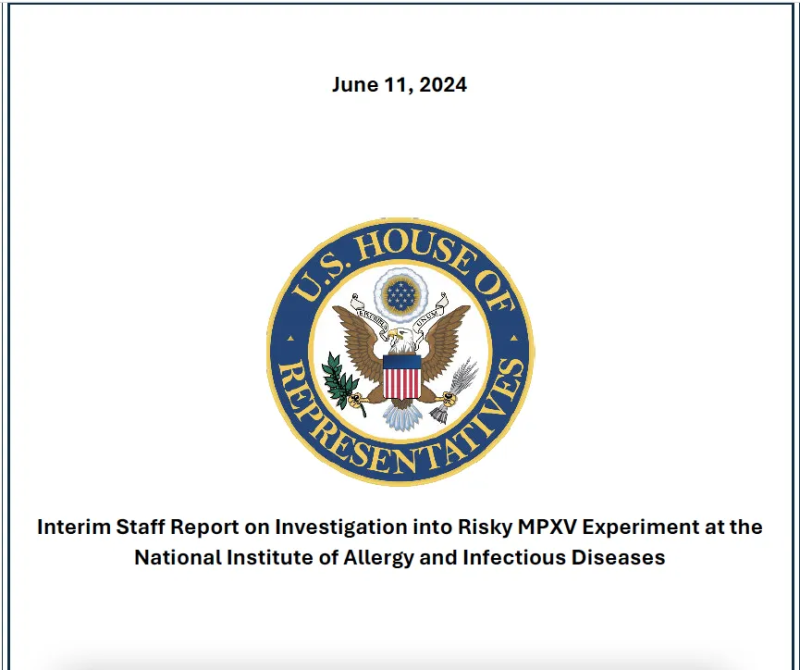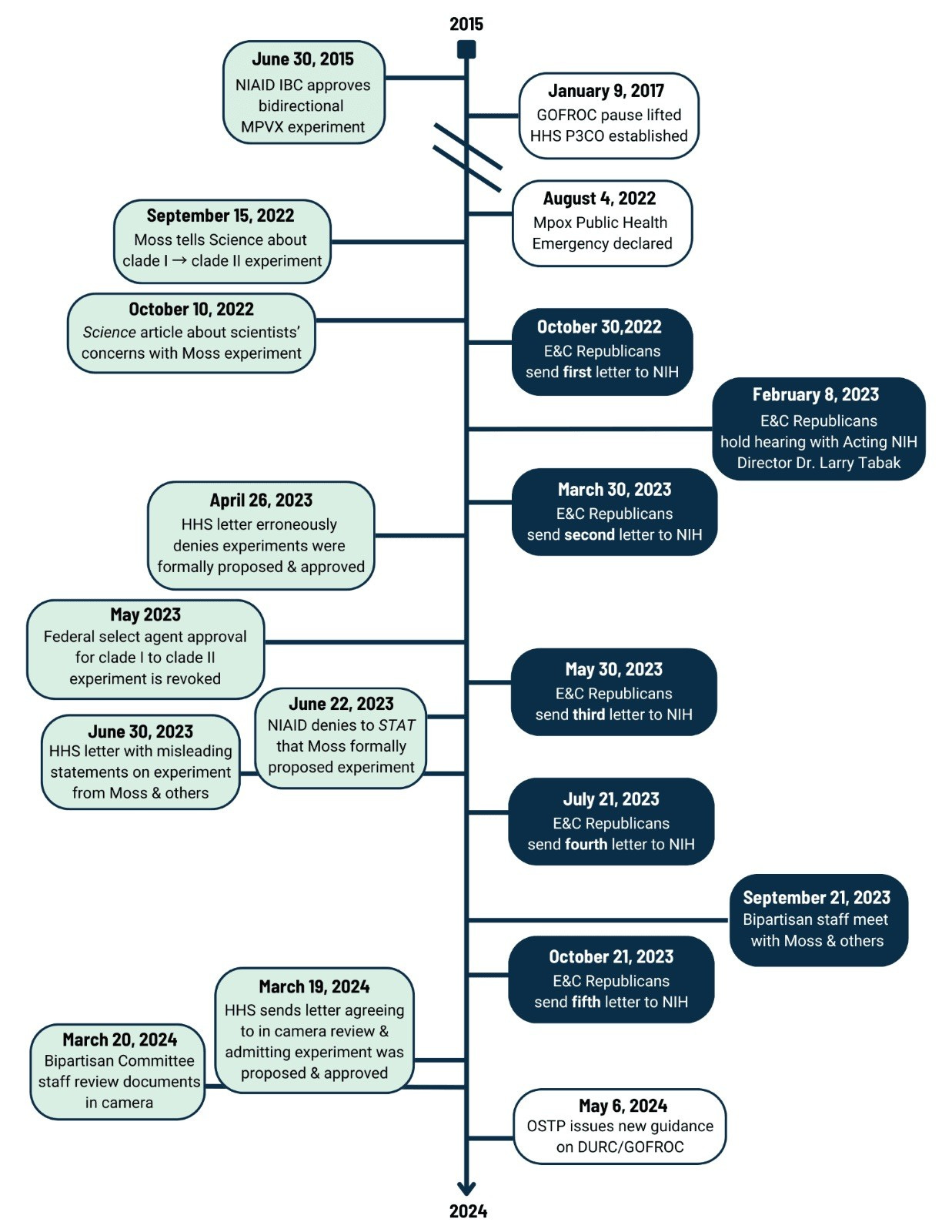

Fresh off the back of Anthony Fauci and his former agency being accused of lying to lawmakers and covering up the origins of Covid-19, the National Institute of Allergy and Infectious Diseases (NIAID) is embroiled in another scandal.
This time, an explosive report by US congressional investigators found the NIAID tried to hide plans to conduct gain-of-function (GOF) research on a lethal strain of the monkeypox virus.
The proposed experiments from 2015 sought to insert genes into the virus to retain a moderate fatality rate of approximately 10-15%, but also to make the virus more transmissible, giving it ‘pandemic potential.’
Investigators with the House Committee on Energy and Commerce first learned about the desire to conduct such research after Bernard Moss of the NIAID revealed it to a journalist during an interview with Science Magazine in 2022, prompting an investigation.
But over the course of 17 months, the Department of Health and Human Services (HHS), the NIH, and NIAID repeatedly misled the Committee in written and oral communications, denying that the potentially dangerous experiment was proposed and approved.
During the investigation, HHS and the NIH refused to answer questions about the research or provide documents requested by the Committee unless they had already been made public. Often it was under threat of a subpoena that information was handed over.
The interim report accuses the NIAID of stonewalling and obfuscating Congressional investigations into the potentially lethal monkeypox research, describing the NIAID’s deceptive behaviour as “unacceptable and potentially criminal.”
It states:
The Committee has lost trust in the NIH and NIAID’s ability to oversee its own research on potential pandemic pathogens or enhanced potential pandemic pathogens and to fairly determine whether an experiment poses an unacceptable biosafety or public health risk.
The Committee says it will continue to seek information from the various institutions on the matter and will continue to request documents and answers about what research has been conducted and how it has been overseen.
They need to decipher if these dangerous experiments were actually performed by Moss’ team at the NIAID – and if not, why did those agencies go to such lengths to mislead the Committee about approval for experiments that never occurred?
The interim report makes a series of recommendations related to biosecurity to ensure future transparency and accountability related to this type of risky research.
The NIAID has not publicly responded to the accusations in the report, but this controversy adds to the ongoing concern over the dishonesty of public health officials who display a blatant disregard for cooperating with oversight investigations.
A timeline of the investigation is below:


Republished from the author’s Substack
Join the conversation:


Published under a Creative Commons Attribution 4.0 International License
For reprints, please set the canonical link back to the original Brownstone Institute Article and Author.









